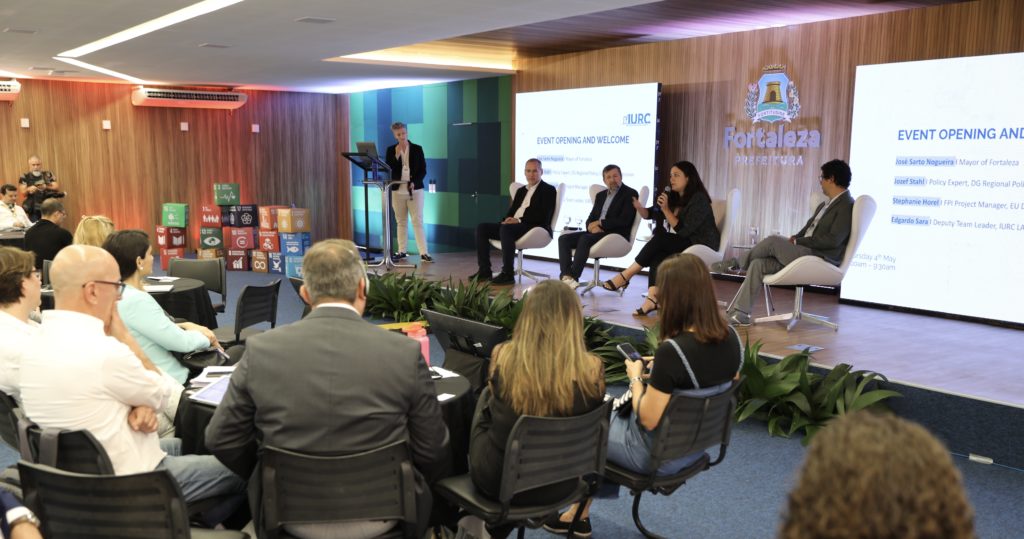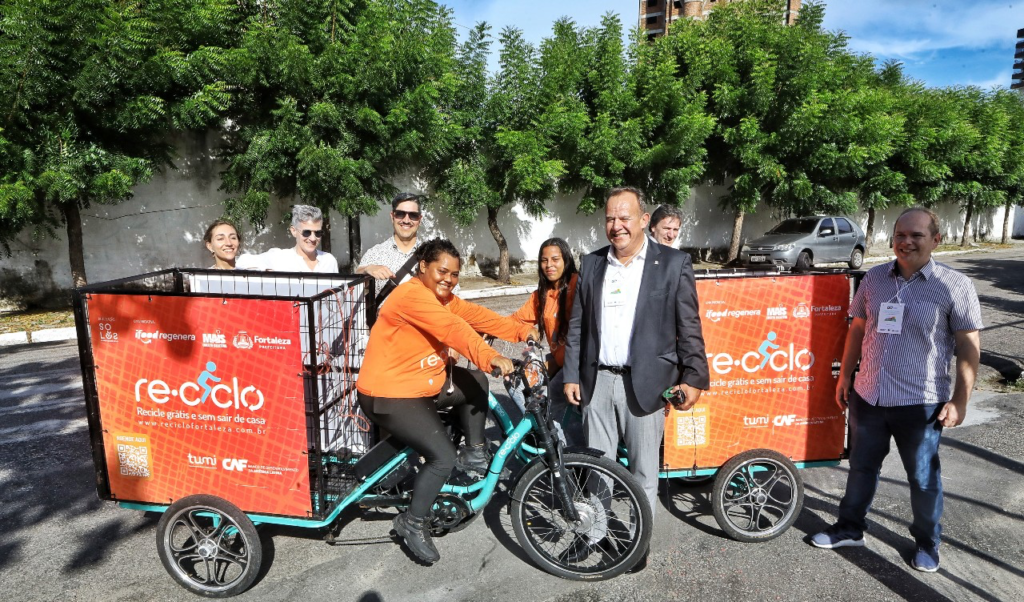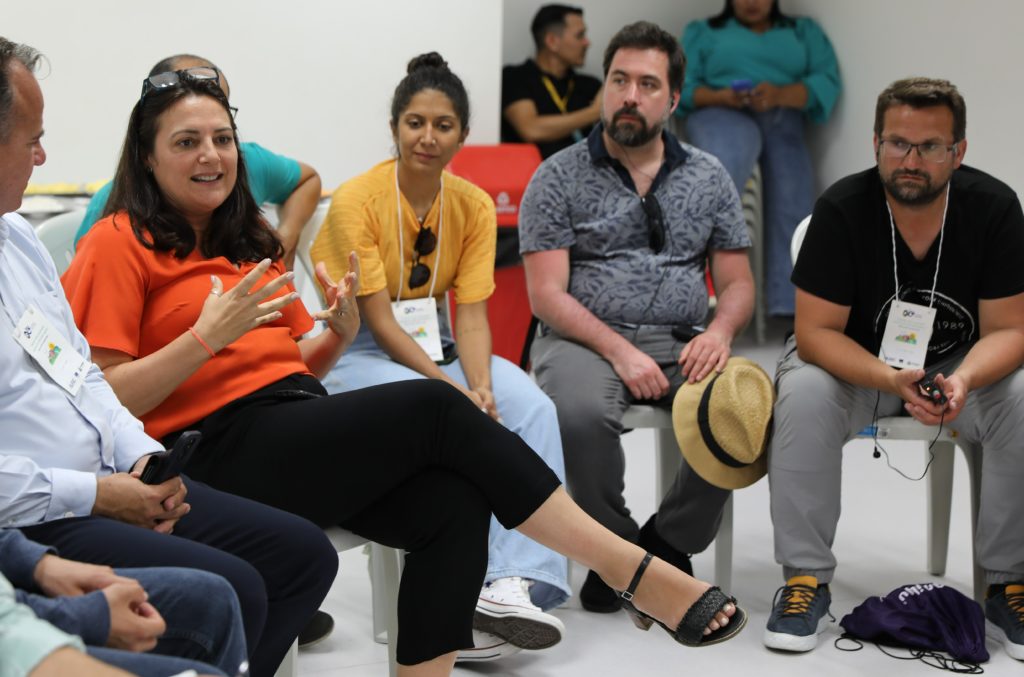On May 4th and 5th, 2023, IURC Latin America co-hosted with the Municipality of Fortaleza and the Foundation for Science, Technology and Innovation (CITINOVA) the two-day event “Circular Economy & Waste Management: Toward more sustainable solutions for cities and regions” in Fortaleza, Brazil. The event is part of EU-Brazil circular economy roadshow, with events also taking place in Rio de Janeiro, Sao Paulo and Manaus. The first day of the event on May 4th, brought together a delegation of 15 cities and regions from 10 countries, including Colombia, Chile, Germany, Poland, Hungary, United States, Mexico, Brazil, Spain, in addition to key stakeholders from the State of Ceará and Fortaleza.

During the opening session on May 4th, Élcio Batista (Fortaleza Deputy Mayor), Stephanie Horel (Project Manager – FPI, EU Delegation to Brazil), Jozef Stahl (Expert – European Commission DG Regional Policy), and Edgardo Sara (IURC-LA Deputy Team Leader) highlighted the importance of international cooperation to exchange knowledge and develop innovative solutions for circular economy and waste management in cities. As climate change is increasingly affecting cities and regions on a global level, the concept of circular economy appears as a solution to manage the impact of both industrial and individual practices on the environment. It allows to reconsider unsustainable consumption and production patterns, to understand the opportunity of re-using existing materials and inputs for new products. The European Commission adopted the circular economy action plan (CEAP) in March 2020. It is one of the main building blocks of the European Green Deal, Europe’s new agenda for sustainable growth. The EU’s aim in the transition to a circular economy is to reduce pressure on natural resources and will create sustainable growth and jobs. It is also a prerequisite to achieve the EU’s 2050 climate neutrality target and to halt biodiversity loss.

Fortaleza, the host city, has been working on Circular Economy and Waste Management in diligent collaboration with Essen, Germany, in the framework of the IURC programme. Their cooperation has been a model for intentional, specific, results-oriented international cooperation: the cities successfully organised bilateral study visits and technical sessions to exchange best practices and work together towards common solutions. Kirsten Helle (Environmental Department of Essen), presented together with Victor Macedo (Vice-president of Citinova) some of the main learnings from their collaboration, and stressed out the relevance of identifying similarities and common challenges, such as the importance of actively engaging citizens in adopting more circular and sustainable consumption patterns and behaviours.
In this regard, Mr. Batista commented that “This partnership between Fortaleza and the European Union, engaging cities around the world, strengthens this new economic model that is circular economy. We are increasingly trying to reuse and recycle everything we produce. This holds an important power and will become one of the main vectors of the world economy. Brazilian cities, and especially Fortaleza, are good examples of what can be achieved in terms of solid waste management public policies”.
During the event, other international best practices were presented, including experiences from San Diego (USA), Rio de Janeiro’s Praia Circular (Brazil), and Essen (Germany). It was followed by a series of complementing field visits in the afternoon, including mini-ecopoints, the Reciclo facilities, and a school with a biogas digestor. Delegates also had the opportunity to try the public bike-sharing system during an evening ride to Fortaleza’s fish market.



On May 5th, experiences from Silesia’s Central Mining Institute (Poland), the city of Fort Collins (USA), and Chihuahua’s Green City programme (Mexico) allowed to present innovative projects with cross-collaboration from the public, private, and research sectors, showcasing how industrial symbiosis and circular economy policies can promote more sustainable models of consumption and production. The second day of the event continued with a visit to a Technological Reconditioning Centre (CRT), the CITINOVA headquarters, a Micropark, and a Cultural Centre (CUCA). Reflections shared by participants highlighted the importance of these encounters as international cooperation have the potential to build ties and partnership necessary for a systemic change towards more sustainable cities and regions.
Read more about the event here:
https://fortaleza.ce.gov.br/noticias/fortaleza-sedia-encontro-promovido-pela-uniao-europeia-sobre-gestao-de-residuos-solidos
https://fortaleza.ce.gov.br/noticias/economia-circular-e-residuos-solidos-delegacao-da-uniao-europeia-destaca-inovacao-dos-projetos-de-fortaleza
